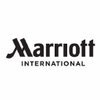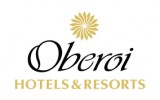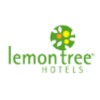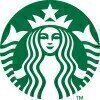Filter interviews by
Burger King Interview Questions and Answers
31 Interview questions
Food safety ensures that food is handled, prepared, and stored to prevent foodborne illnesses and contamination.
Proper food handling: Wash hands before preparing food to avoid cross-contamination.
Cooking temperatures: Cook meat to safe internal temperatures (e.g., 165°F for poultry).
Storage guidelines: Refrigerate perishable items within two hours to prevent bacterial growth.
Labeling: Use clear labels on food item...
The procurement to payment process involves steps from identifying needs to making payments for goods or services acquired.
Identify needs: Determine what goods or services are required, e.g., office supplies.
Supplier selection: Evaluate and choose suppliers based on criteria like price and quality.
Purchase order creation: Generate a formal document to request the purchase, e.g., PO for 100 chairs.
Order approval: O...
Store PNL (Profit and Loss) measures a store's financial performance, detailing revenues and expenses over a specific period.
PNL consists of revenues (sales) and expenses (cost of goods sold, operating expenses).
Calculate total revenue by summing all sales transactions during the period.
Subtract cost of goods sold (COGS) from total revenue to find gross profit.
Deduct operating expenses (rent, utilities, salaries) ...
I have extensive experience interacting with customers, focusing on understanding their needs and providing excellent service.
I actively listen to customers to understand their concerns, ensuring they feel heard and valued.
In my previous role, I resolved a customer's issue with a product by offering a replacement and following up to ensure satisfaction.
I have experience in handling difficult situations, such as ca...
As an Operations Manager, I oversee daily operations, optimize processes, and ensure efficient resource management.
Manage supply chain logistics to ensure timely delivery of products, e.g., coordinating with suppliers and transport services.
Implement process improvements that increase efficiency, such as reducing production time by 20% through lean methodologies.
Lead cross-functional teams to achieve operational g...
I tend to be overly critical of my own work, which can slow down my decision-making process.
I often spend extra time reviewing my work to ensure it's perfect, which can delay project timelines.
For example, during a recent project, I re-evaluated my presentation multiple times, which caused me to miss the deadline.
I've learned to balance quality with efficiency by setting strict time limits for revisions.
Increasing sales can be achieved through various strategies such as improving customer experience, implementing effective marketing campaigns, and optimizing product displays.
Enhance customer experience through personalized service and efficient checkout process
Implement targeted marketing campaigns to reach potential customers
Optimize product displays to attract attention and encourage impulse purchases
Profit and loss is a financial statement that summarizes the revenues, costs, and expenses incurred during a specific period of time.
Profit is the amount of money a business earns after deducting all expenses from revenue
Loss occurs when a business's expenses exceed its revenue
Profit and loss statement helps in analyzing the financial performance of a business
It includes revenue, cost of goods sold, gross profit, ...
Creating SOP around a product involves documenting step-by-step procedures for its use, maintenance, and troubleshooting.
Identify key processes and tasks related to the product
Document step-by-step procedures for each process
Include safety precautions and best practices
Review and update SOP regularly to ensure accuracy and relevance
Various sources of content creation include research, interviews, surveys, brainstorming sessions, and user-generated content.
Research - gathering information from books, articles, and online sources
Interviews - conducting interviews with subject matter experts or stakeholders
Surveys - collecting data through surveys to understand audience preferences
Brainstorming sessions - generating ideas through group discussi...
Burger King Interview Experiences
81 interviews found
I appeared for an interview in Feb 2025.
(2 Questions)
- Q1. What can you tell us about yourself?
- Q2. What about food safety ?
- Ans.
Food safety ensures that food is handled, prepared, and stored to prevent foodborne illnesses and contamination.
Proper storage: Keep perishable items refrigerated to slow bacterial growth. Example: Store raw meat on the bottom shelf to prevent drips.
Cooking temperatures: Ensure food is cooked to safe internal temperatures. Example: Chicken should reach 165°F (75°C) to kill harmful bacteria.
Cross-contamination preventio...
(2 Questions)
- Q1. What can you tell us about yourself?
- Q2. What is the food safety?
Interview Preparation Tips
I applied via Company Website and was interviewed in Sep 2024. There were 2 interview rounds.
A comprehensive technique to judge the suitability of an individual and his appropriateness for admission, scholarship, job
(5 Questions)
- Q1. I will do aney hardwork
- Q2. I'll trying to best company$
- Q3. Good performance
- Q4. Best activity & my self
- Q5. I'llsow my best hardworking activity
Interview Preparation Tips
I appeared for an interview in May 2025, where I was asked the following questions.
- Q1. Are you a fresher or experienced?
- Ans.
I am a fresher, eager to learn and contribute my skills to the team while gaining valuable experience in the role.
I recently completed my education in [relevant field], where I gained foundational knowledge.
During my studies, I participated in internships that provided hands-on experience in customer service.
I am enthusiastic about learning from experienced team members and adapting quickly to the work environment.
- Q2. Are you willing to work overtime?
- Ans.
Yes, I am willing to work overtime to support the team and ensure tasks are completed efficiently.
I understand that overtime may be necessary during busy periods, such as holidays or special events.
In my previous job, I often volunteered for extra shifts to help out my team.
I believe that working overtime can help improve team morale and productivity.
I appeared for an interview in Apr 2025, where I was asked the following questions.
- Q1. What is labour cost and food cost
- Ans.
Labour cost refers to employee expenses, while food cost pertains to the expenses of ingredients used in food preparation.
Labour cost includes wages, benefits, and payroll taxes for employees.
Example: A restaurant pays $15/hour for a server, contributing to its labour cost.
Food cost encompasses the price of raw ingredients used in menu items.
Example: If a dish requires $3 worth of ingredients, that contributes to the f...
- Q2. How to recieved a guest
- Ans.
Welcoming a guest involves a warm greeting, attentive service, and ensuring their needs are met for a positive experience.
Greet the guest with a warm smile and eye contact to create a welcoming atmosphere.
Introduce yourself and ask for the guest's name to personalize the interaction.
Inquire about their needs or preferences, such as seating or menu recommendations.
Provide information about the establishment, including s...
I appeared for an interview in Mar 2025, where I was asked the following questions.
- Q1. How you experience with customers?
- Ans.
I have extensive experience interacting with customers, focusing on understanding their needs and providing excellent service.
I actively listen to customers to understand their concerns, ensuring they feel heard and valued.
In my previous role, I resolved a customer's issue with a product by offering a replacement and following up to ensure satisfaction.
I have experience in handling difficult situations, such as calming...
- Q2. How did u work with team?
- Ans.
I collaborated closely with my team, fostering open communication and leveraging each member's strengths to achieve our goals.
Regular team meetings to discuss progress and challenges, ensuring everyone is aligned.
Encouraged open feedback, which helped us improve our processes and outcomes.
Assigned roles based on individual strengths; for example, I took the lead on project planning while others focused on execution.
Uti...
- Q3. Good communication skills?
- Q4. Have you experience sales department??
- Ans.
I have experience in sales, focusing on customer engagement and achieving targets through effective communication and relationship building.
Worked as a sales associate at XYZ Company, exceeding sales targets by 20% in my first year.
Developed strong relationships with clients, leading to a 30% increase in repeat business.
Participated in training sessions to enhance product knowledge, which improved my ability to address...
I applied via LinkedIn and was interviewed in Mar 2024. There were 2 interview rounds.
(10 Questions)
- Q1. About your self
- Q2. How much your experience
- Q3. Who are current job
- Q4. Who are position
- Q5. How many years working
- Q6. Your family background
- Ans.
I come from a close-knit family that values education, creativity, and support for one another's dreams.
My parents are both educators, which instilled a love for learning in me from a young age.
I have two siblings; we often collaborate on creative projects, like writing and art.
Family gatherings are a big deal for us, filled with laughter, storytelling, and delicious home-cooked meals.
My grandparents played a significa...
- Q7. Where do you live
- Ans.
I live in a vibrant neighborhood filled with parks, cafes, and a strong sense of community, making it a wonderful place to call home.
The area has beautiful green spaces, perfect for morning jogs or evening strolls.
There are several local cafes where I enjoy meeting friends and working remotely.
The community hosts regular events, fostering a friendly atmosphere.
Public transport is easily accessible, making commuting con...
- Q8. When you are working years
- Q9. What are your father working this place
- Q10. What are you mother
- Ans.
My mother is a nurturing, resilient woman who balances her career and family with grace and love.
She has a background in education, teaching elementary school for over 20 years.
Her passion for gardening has turned our backyard into a vibrant oasis filled with flowers and vegetables.
She volunteers at the local animal shelter, showing her compassion for all living beings.
Her favorite pastime is reading, and she often sha...
I am so happy this opportunity .and good company
Interview Preparation Tips
- Q1. PNL sale team handling
- Q2. Cogs roster and ordering
I applied via Campus Placement and was interviewed in Mar 2024. There were 2 interview rounds.
(3 Questions)
- Q1. Tell me your weekness
- Q2. Tell me about your self
- Q3. What do you want to become in your life
- Ans.
I aspire to become a successful leader in my field, inspiring others while making a positive impact on society.
I want to lead a team that innovates solutions for real-world problems, like developing sustainable technologies.
I aim to mentor young professionals, sharing my experiences to help them grow in their careers.
I envision contributing to community development projects, such as organizing workshops for skill-build...
(3 Questions)
- Q1. HR because it's my dream I want to become a HR for your company
- Q2. Why should be higher you
- Q3. Why do you want to do a job
Interview Preparation Tips
- Q1. What about your self
- Ans.
I am a dedicated professional with a strong background in management, team leadership, and problem-solving skills.
I have over 5 years of experience in management roles, leading teams to achieve their goals.
In my previous job, I successfully implemented a new project management system that increased efficiency by 20%.
I am skilled in conflict resolution, having mediated several team disputes to maintain a positive work e...
- Q2. What is the food safety
- Ans.
Food safety ensures that food is handled, prepared, and stored to prevent foodborne illnesses and contamination.
Proper food handling: Wash hands before preparing food to avoid cross-contamination.
Cooking temperatures: Cook meat to safe internal temperatures (e.g., 165°F for poultry).
Storage guidelines: Refrigerate perishable items within two hours to prevent bacterial growth.
Labeling: Use clear labels on food items to ...
- Q1. What is your expected salary?
- Q2. What is the definition of a job?
- Q3. What is your current location?
Top trending discussions






Burger King Interview FAQs
The duration of Burger King interview process can vary, but typically it takes about less than 2 weeks to complete.
Tell us how to improve this page.
Burger King Interviews By Designations
- Burger King Shift Manager Interview Questions
- Burger King Restaurant General Manager Interview Questions
- Burger King Assistant Manager Interview Questions
- Burger King Restaurant Manager Interview Questions
- Burger King Team Member Interview Questions
- Burger King Maintenance Executive Interview Questions
- Burger King Assistant Restaurant Manager Interview Questions
- Burger King Team Lead Interview Questions
- Show more
Interview Questions for Popular Designations
Overall Interview Experience Rating
based on 97 interview experiences
Difficulty level
Duration
Interview Questions from Similar Companies
Burger King Reviews and Ratings
based on 1.2k reviews
Rating in categories
|
Shift Manager
552
salaries
| ₹1.5 L/yr - ₹4.5 L/yr |
|
Restaurant General Manager
434
salaries
| ₹3.8 L/yr - ₹7.4 L/yr |
|
Assistant Restaurant Manager
200
salaries
| ₹2.8 L/yr - ₹5 L/yr |
|
Assistant Manager
177
salaries
| ₹2.2 L/yr - ₹5.2 L/yr |
|
Team Member
151
salaries
| ₹0.7 L/yr - ₹4.5 L/yr |

Jubilant Foods Works

Mahindra Holidays & Resorts

Cafe Coffee Day

Marriott International
- Home >
- Interviews >
- Burger King Interview Questions













